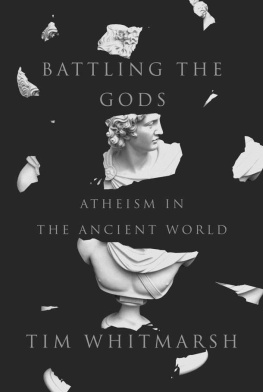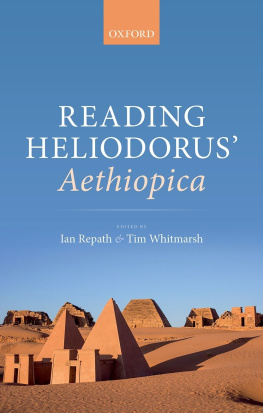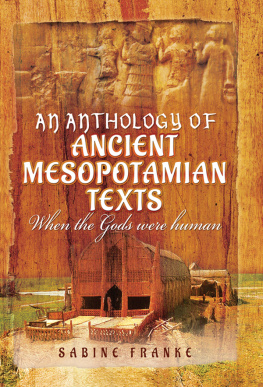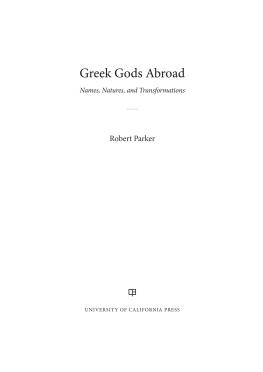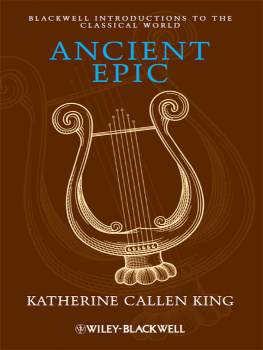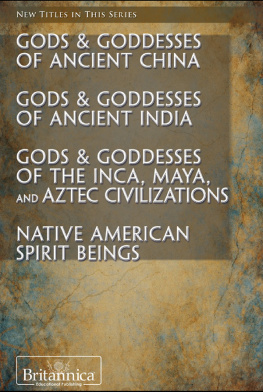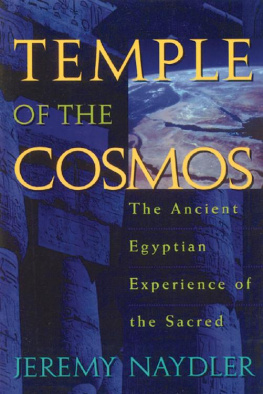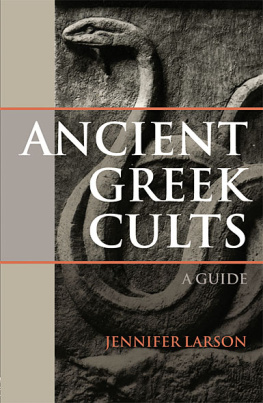This book is about atheists in the ancient world, primarily in Greece: their ideas, their innovations, their battles, their persecution. It is a work of history, not of proselytism. It is not my aim to prove the truth (or indeed falsehood) of atheism as a philosophical position. I do, however, have a strong convictiona conviction that has hardened in the course of the researching and writing of this bookthat cultural and religious pluralism, and free debate, are indispensable to the good life.
A Dialogue
THERSANDER: The gods are dead. Their withered bodies lie immolated on the altars of science and reason. The pious are exposed for credulous fools.
DIOTIMUS: Nonsense! Belief in the gods is stronger than ever. It is true, of course, that the peacocks of the academy deceive themselves that their worldly knowledge is all. But you should get out into the streets. Leave behind your chattering dinner parties and take a walk through the city: the shrines are packed, the temples blackened with the smoke of sacrifice.
THERSANDER: Their belief is skin-deep. They act this way because they have always done so, not out of deep conviction. They do not have the time or inclination to question; they are too busy trying to survive, while their foolish leaders pitch them from one disaster to another.
DIOTIMUS: The people need their gods, in this perilous world of ours. It is their comfort and stay.
THERSANDER: Yes, of course religion offers comfort and hope. But it also makes for anxiety and fear! It plays on the emotions of the credulous. It has nothing to do with truth. Only observation, testing, and rational enquiry can lead us to proper understanding.
DIOTIMUS: You blind yourself to the truth that is not of this world. It is obvious that humans are born capable of glimpsing the divine. All people have that capacity, even if some choose not to use it. That is why there has never been, and never will be, a society without gods.
THERSANDER: Humans created gods. Primitive humans saw divinity in the sun, moon, and stars, in the cycles of the seasons. They lacked scientific understanding of matter, the cosmos, and nature. In time, politicians and rulers realized the power of religious belief and cynically twisted it to their own ends. There are no gods overseeing social order, punishing wrongdoing; that is simply what our leaders teach us, to keep us in check.
DIOTIMUS: Atheism is a fad. Future generations will look back on it as a passing folly.
THERSANDER: Quite the opposite: it is religion that is dying. It has no answers to the questions of the modern world, only adherence to outdated dogma and ritual. I know that belief in the gods is deeply rooted, and those who profit from it will fight tooth and claw to preserve it. But as true understanding of the world grows and spreads, it will be exposed for the vanity that it is.
This dialogue, between a religious devotee and an atheist intellectual in Athens at the end of the fifth century BC, did not take place. But it could have done. All of the ideas in it are to be found in ancient Greek sources. If the terms of the debate seem arrestingly modern, that is no coincidence. We are still, in the twenty-first century, grappling with issues that are at least two and a half millennia old.
Atheism, we are so often told, is a modern invention, a product of the European Enlightenment: it would be inconceivable without the twin ideas of a secular state and of science as a rival to religious truth. This is a myth nurtured by both sides of the new atheism debate: adherents wish to present skepticism toward the supernatural as the result of sciences progressive eclipse of religion, and the religious wish to see it as a pathological symptom of a decadent Western world consumed by capitalism. Both are guilty of modernist vanity. Disbelief in the supernatural is as old as the hills. Already in the fourth century BC, Plato imagines a believer chastising an atheist: You and your friends are not the first to have held this view about the gods! There are always those who suffer from this illness, in greater or lesser numbers. We may balk at his disease imagery, but Plato was surely right in his general point. There have been many throughout history and across all cultures who have resisted belief in the divine.
It is of course undeniable that religion has dominated human culture as far back as we can trace it. The problem lies with the normative claims built on that observation. Too often religious practice is imagined to be the regular state of affairs, needing no explanation, whereas any kind of deviation is seen as weird and remarkable. This view underpins the modernist mythology: the post-Enlightenment West is seen as exceptional, completely unlike anything else that has preceded it and unlike anything elsewhere in the world. This is a dangerous misprision. To the religious, it can suggest that belief is somehow universal, essential to the human condition, and that creeping secularism is an unnatural state. Atheists, on the other hand, can be seduced into delusional self-congratulation, as if twenty-first-century middle-class westerners have been the only people throughout history capable of finding problems with religion.
Religious universalismthe idea that belief in gods is the default setting for human beingsis everywhere in the modern world. There is a growing trend toward speaking of religion as ingrained, or even hardwired into the human subject. So-called neurotheologists have even sought to identify a part of the brain, the so-called god spot, where religious impulses originate. Others have argued that the human propensity toward religion emerged as an evolutionary advantage. These are controversial claims, and fortunately it is not our job to evaluate them here. The crucial point is that they can all be taken to buttress the normative view of religion. They project the idea that supernatural belief is fundamental to humanity. They follow Karen Armstrong in redefining Homo sapiens as Homo religiosus. Such views have their modern roots in the ideas of European theorists of natural religion like Joseph Franois Lafitau, who aimed to demonstrate that all peoples have the innate potential for Christianity (and hence to legitimate the missionary project); they were, however, already seeded in the religious revolutions of late antiquity.

